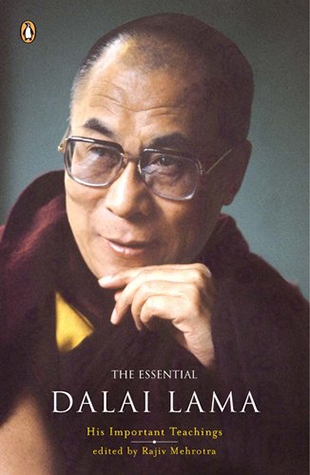"All of our spiritual practices should be directed toward developing the altruistic thought of the awakening mind. In order for this sublime thought to arise, it is essential to understand sentient beings' plight. This helps us to generate kindness and compassion for others. Unless we have some experience of suffering, our compassion for others will not amount to very much. Therefore, the wish to free ourselves from suffering precedes any sense of compassion for others. The goal of all our spiritual practices should be the awakening mind. This is the supreme and most precious of all the Buddha's teachings. In order that our sense of the awakening mind be effective and powerful, meditate on death and the law of cause and effect.
"Meditate, in addition, on the vicious nature of the cycle of existence and the benefits of nirvana. All these practices are complementary because they each serve to provoke us into developing the awakening mind.
"The second step in developing the awakening mind is to think about death and the impermanent nature of things as well as the disadvantages of not doing so. Thinking about death and impermanence opens the door to achieving excellent qualities in this life and the next. Meditation on death and the miseries of the lower realms of existence is of primary concern to those practitioners who are trying to ensure the welfare of their own future lives. They aim to achieve their goals by taking refuge in the Three Jewels and observing the law of cause and effect. Such practitioners principally abstain from the ten nonvirtuous actions.
"Through the process of meditation, individuals seeking a happy rebirth come to realize that the body is impermanent and subject to decay. It is under the sway of disturbing emotions and past actions, both of which ultimately stem from the ignorant conception of true existence. Whatever arises because of ignorance is miserable by nature. Practitioners who merely seek a happy rebirth chiefly meditate on coarse impermanence, observing that we all die, flowers wither and houses collapse. Those who seek the peace of nirvana meditate on subtle impermanence, observing that all phenomena are subject to momentary change.
"Now when we talk about Dharma practice, people sometimes misunderstand what it means. So let me put it in perspective. Practicing the Dharma does not mean you have to give up your profession or do away with your possessions. There are various levels of practice according to individual ability and mental disposition. Everyone cannot renounce the world and meditate in the mountains. This is not practical. How long could we survive? We would soon starve. We need farmers to grow food, and we need as well the support of the business community. These people also can practice the teachings and integrate their lives within the bounds of the Dharma. Businesspeople must make profit to earn their living, but the profit should be moderate. Similarly, people in other trades and professions can work honestly and conscientiously without contradicting the Dharma. In this way they can serve the community and help the overall economy.
"I usually advise people to devote half their time to the affairs of life and half their time to the practice of the teachings. This, I think, is a balanced approach for most people. Of course, we need the real renunciates who dedicate their whole lives to practice. They are worthy of our respect and veneration. We can find them among all traditions of Tibetan Buddhism. There are many meditating in the Himalayas."
